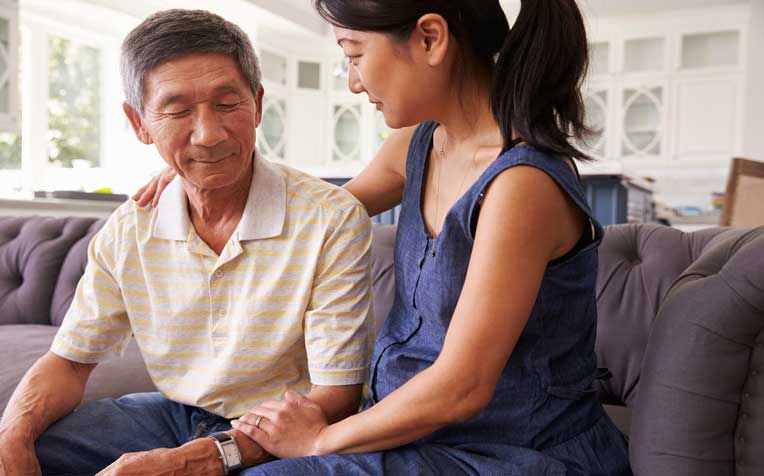HealthXchange will NEVER ask you to transfer money over a call. If in doubt, call the 24/7 ScamShield helpline at 1799, or visit the ScamShield website at www.scamshield.gov.sg.
Elderly Depression: Signs and Causes

Elderly depression can be caused by social isolation or loneliness.
Depression in the elderly
Don’t be too quick to dismiss the sudden moodiness, withdrawal or incessant complaints about aches and pains from your elderly parents. These may be signs of elderly depression, a serious medical condition which can be prevented and treated.
“When one reaches late adulthood (65 years and above), one will inevitably experience physical decline and some form of loss – loss of health, spouse, family members or loss of income and independence,” says Dr Kaysar Mamun, Senior Consultant at the Department of Geriatric Medicine, Singapore General Hospital (SGH), a member of the SingHealth group.
In Singapore, depression strikes about six per cent of the elderly population aged 65 and above.
If depression is left untreated, it can adversely affect the elderly person’s ability to recover from serious medical conditions such as cancer and heart disease, adds Dr Mamun. According to a 2010 report published in the Cleveland Clinic Journal of Medicine, depression worsens the outlook for elderly patients with heart failure.
Signs of elderly depression
Be alert for these signs of depression in yourself, your elderly parents or relatives:
- Feeling persistently sad, moody and down
- Becoming increasingly withdrawn (e.g. avoiding family and friends)
- Sudden change in eating habits (either eating too little or a lot)
- Change in sleeping habits (insomnia or the opposite, sleeping a lot more than usual)
- Poor concentration
- Always feeling tired
- Having negative feelings such as excessive guilt, worthlessness and helplessness
- Expressing suicidal thoughts
Causes of elderly depression
There are many causes of elderly depression. Being diagnosed with a serious medical illness such as cancer or having recently suffered from a disability such as stroke and heart attack can bring about depression.
Medications used to treat Parkinson disease, high blood pressure and high cholesterol can also trigger or worsen depression.
Other triggers:
- Loss of social support systems such as loss of spouse and close family members (bereavement), and children leaving home
- Social isolation or loneliness
- Being single, widowed or divorced
Ref. T12
Related Articles
Public Events
Get the Health Buddy App
© 2025 SingHealth Group. All Rights Reserved.















 Get it on Google Play
Get it on Google Play